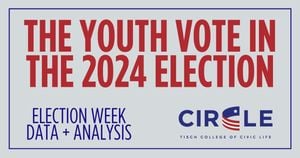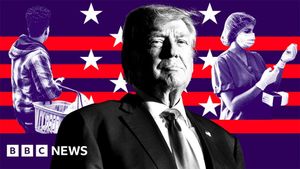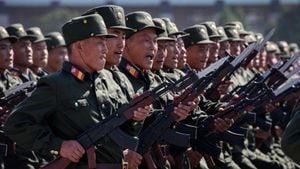Chennai has recently become the focal point of national concern after the violent stabbing of Dr. Balaji Jaganathan, an oncologist at the Kalaignar Centenary Super Speciality Hospital. The attack, which occurred on Wednesday, was carried out by Vignesh, the son of one of Dr. Jaganathan's patients. He reportedly took issue with the treatment his mother received, leading him to confront the doctor. This attack has reignited pressing discussions around the safety and security of medical professionals throughout India.
Dr. Jaganathan was treating the assailant's mother, who had been diagnosed with advanced ovarian cancer. Outraged at the perceived inadequacies of her treatment, Vignesh entered Dr. Jaganathan's consultation room and attacked him with a kitchen knife, stabbing him seven times. Witnesses reported Vignesh had been seen arguing with Dr. Jaganathan days before the incident, showcasing the deepening tensions between healthcare providers and patients' families.
Dr. Jaganathan underwent immediate surgery due to severe injuries sustained to various parts of his body, including his neck and back. Medical staff reported his condition is currently stable, with vigilant monitoring taking place. The quick intervention of the hospital staff helped prevent what could have been even more catastrophic consequences.
The aftermath of the attack has swept through Chennai, prompting calls for immediate action from the healthcare sector. The Indian Medical Association (IMA), representing thousands of healthcare workers, issued a statement condemning the violence and calling for legislation aimed at ensuring the safety of doctors and medical staff across the country. They emphasized the urgent need for strong legal frameworks, exemplary punishments, and proactive measures to prevent continuing violence.
This is not the first time India has confronted issues of violence against healthcare workers. Reports indicate alarming statistics, with more than 75% of doctors having faced some form of violence, often at the hands of patients' families. Such incidents have triggered protests and work stoppages as doctors demand safer working conditions.
Both the events leading up to and following the stabbing have sparked significant outrage among medical professionals. Across Tamil Nadu, various doctors' unions have initiated protests, threatening strikes if their demands for improved security measures are not met. Senior doctors have pointed to the recent surge of violence within healthcare environments and the perceived impunity enjoyed by offenders.
Deputy Chief Minister Udayanidhi Stalin visited the hospital on the day of the attack, promising strict action against the assailant and reaffirming the state's commitment to providing necessary medical care for Dr. Jaganathan. Despite these reassurances, many believe the actions taken by the government and health authorities have been insufficient.
Critics of the state governance have expressed frustration and anger, asserting the government has neglected its responsibilities to protect healthcare providers. They argue failure to implement tighter security measures reflects growing lawlessness, especially within hospitals, which were previously perceived as safe havens for both patients and caregivers.
The plight of medical professionals is not exclusively localized to Chennai or Tamil Nadu, but is seen as part of a wider national crisis. Healthcare workers across India have faced relentless criticism and, at times, brutal backlash for choices made during patient care, particularly amid the backdrop of widespread societal frustrations due to economic difficulties and health crises, exacerbated by the COVID-19 pandemic.
Following the attack on Dr. Jaganathan, many have drawn parallels to earlier violence against healthcare providers, including the notorious rape and murder of another doctor at RG Kar hospital, which incited national protests and forced the government to acknowledge the urgent need for greater security measures. Activists and medical associations have reiterated their demands for national legislation to prevent such violence and create safe working conditions for doctors.
Past attempts at introducing such laws have foundered. While some states already possess regulations intended to protect healthcare workers from violence, critics have expressed skepticism about their enforcement. A draft bill proposed by the central government was shelved after stakeholders deemed the existing laws sufficient, but many healthcare workers feel they have not resulted in meaningful changes.
The call for integrated security measures has grown louder, with suggestions including increased hospital security personnel, functioning CCTV installations, and immediate reporting protocols for any violent altercations. Dr. Anto Uresh, from the Tamil Nadu Government Doctors Association, noted the need to demonstrate to patients and their families the seriousness of threats posed against healthcare staff.
Dr. Uresh and his colleagues assert the importance of public awareness campaigns to show the significance of respecting the medical profession. "We need to build trust with our patients and assure them of our best intentions, but there must be accountability for those who misuse their grievances as justification for violence," Uresh explained.
While the government has shown some willingness to support medical professionals, with both Tamil Nadu’s Chief Minister and Deputy Chief Minister expressing their condemnation of the attack, tangible security changes remain necessary. The medical community continues to hope measures will be put in place soon to prevent future incidents, instilling confidence among those working at the forefront of patient care.
Despite the grim reality faced by many doctors, the resilience of the medical community stands out. Throughout this turbulent period, their commitment to serving the public and ensuring healthcare safety, even without adequate protections, serves as both motivation and reminder of the sacrifices so many make daily. The outcome of the attack on Dr. Jaganathan will determine how seriously the issue of doctor safety continues to be taken, and whether necessary reforms materialize to provide the medical community with the protections they urgently deserve.



